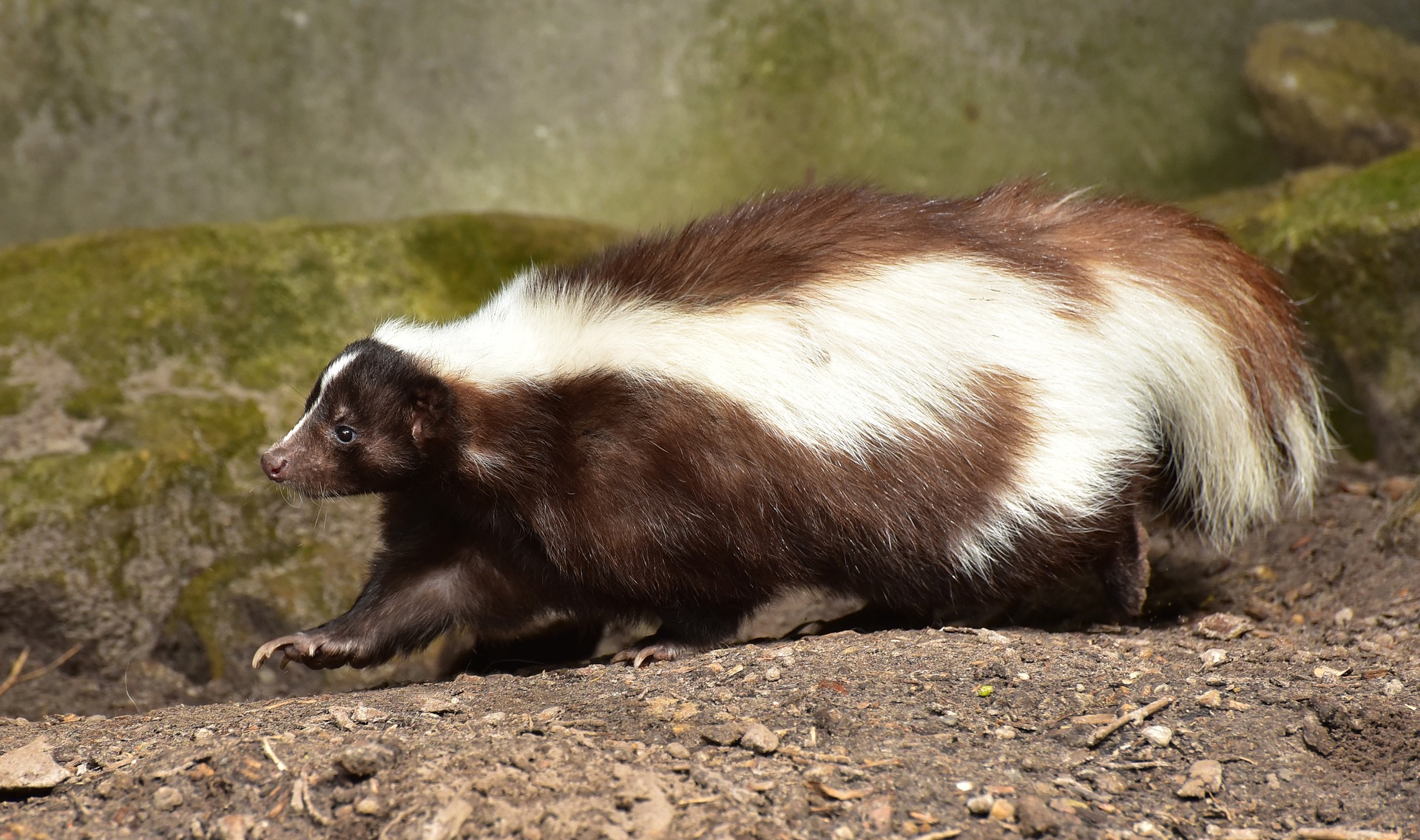When it comes to the animal kingdom, there are many strange and surprising relationships between predators and prey.
One such question that often comes up is whether snakes eat skunks. In this article, we will answer the question: do snakes eat skunks?
What Do Snakes Typically Eat?
Before diving into whether snakes eat skunks, it’s important to understand what snakes typically eat.
Most snakes are carnivores and consume a diet primarily consisting of rodents, birds, and other small mammals. Some snakes also eat amphibians, insects, and fish.
Do Snakes Eat Skunks?
Snakes do not typically eat skunks as they have a strong odor and can cause harm to the snake.
While snakes are known to eat a variety of prey, including animals larger than themselves, skunks are not typically on the menu.
Skunks have a strong odor that can deter predators, which can also harm snakes. Skunks also have sharp claws and teeth that can cause serious harm to a snake.
Do skunks eat snakes?
Skunks are known to have a varied diet that includes both animal and plant matter.
While skunks are not typically known to specialize in eating snakes, they may consume them if they come across one.
Skunks are omnivorous and opportunistic feeders, meaning they will eat whatever is available to them.
Their diet can include insects, small mammals, birds, fish, eggs, fruits, and vegetables. They are also known to scavenge for food and eat carrion.
So while it is not a common part of their diet, skunks may occasionally eat snakes if they find them in their habitat and are hungry.
However, it’s worth noting that skunks usually avoid confrontation with potential predators, and snakes may not be an easy target for them due to their quick movements and ability to defend themselves.
FAQS
Why can’t snakes eat skunks?
Skunks are not typical prey for snakes, and they have a powerful defense mechanism that makes them unattractive to predators.
Skunks have the ability to release a highly potent and unpleasant-smelling spray that can cause discomfort, blindness, and even death in some predators.
Have there been any documented cases of snakes eating skunks?
While there may be some anecdotal accounts of snakes eating skunks, there are no documented cases of this happening.
It is highly unlikely that a snake would attempt to eat a skunk due to the risk of getting sprayed.
Are skunks dangerous to snakes?
Skunks are not typically dangerous to snakes, but they can defend themselves with their potent spray if they feel threatened.
Snakes would likely avoid confrontation with a skunk due to the risk of getting sprayed.
Are snakes dangerous to skunks?
While snakes are not typically a threat to skunks, some large snake species could potentially harm or kill a skunk if they bite them. However, this is not a natural prey item for snakes and is unlikely to occur.
What should I do if I see a snake or skunk in my yard?
If you encounter a snake or skunk in your yard, it is best to leave them alone and give them plenty of space to move away.
Both snakes and skunks are important ecosystem members and can provide valuable pest control services.
If you are concerned about the presence of snakes or skunks on your property, consider contacting a wildlife control professional for assistance.
Conclusion
Snakes do not usually eat skunks due to the skunk’s strong odor and the potential harm it can cause to the snake. While snakes are known for their diverse prey selection, skunks are not a typical part of their diet.
Skunks have various defense mechanisms, such as their strong odor, sharp teeth, and claws, that can cause serious harm to snakes. Therefore, it’s safe to say that skunks are not a preferred food source for snakes.
Related Articles:
Do snakes eat their babies? | A Detailed Guide
10 Reasons Why do snakes eat themselves?

